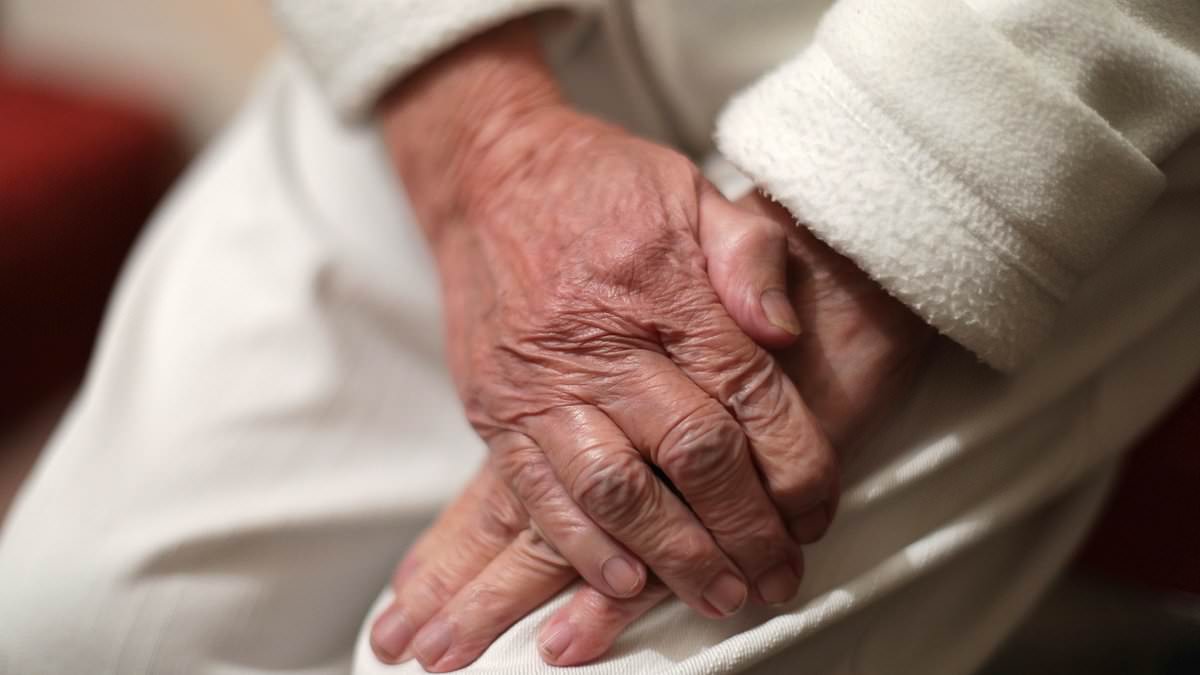Families have been urged to look out for symptoms of dementia as they gather with loved ones at Christmas after the NHS found more people than ever have been diagnosed with the condition.
The health service said November figures revealed 499,068 people in England received a diagnosis – a jump of 19,416 in a year.
Care minister Stephen Kinnock said a timely diagnosis was ‘vital’ to ensure patients could access the care and support they need as early as possible.
Common symptoms include forgetfulness, irritability, struggling to follow a conversation or find the right word and being confused about time and place.
Dr Jeremy Isaacs, NHS England national clinical director for dementia, said: ‘[The disease] often develops slowly and might not be apparent during a brief interaction, but with family and friends gathering at Christmas perhaps for the first time in months, there is an opportunity to spot the signs.’

Families are being urged to look out for symptoms of dementia in family members over Christmas (file photo)

Care minister Stephen Kinnock (file photo) said a timely diagnosis was ‘vital’ to ensure patients could access the care and support they need as soon as possible
Dementia was the leading cause of death in the UK in 2023 – with 75,393 people dying last year, compared with 74,261 in 2022 and 69,178 in 2021, according to Alzheimer’s Research UK.
Jennifer Keen, head of policy at Alzheimer’s Society, backed the drive to encourage people to check symptoms, adding: ‘Christmas should be a happy time when families get together.
‘But sadly, for some people it will be the first time they notice changes in their loved ones showing signs of dementia.’










